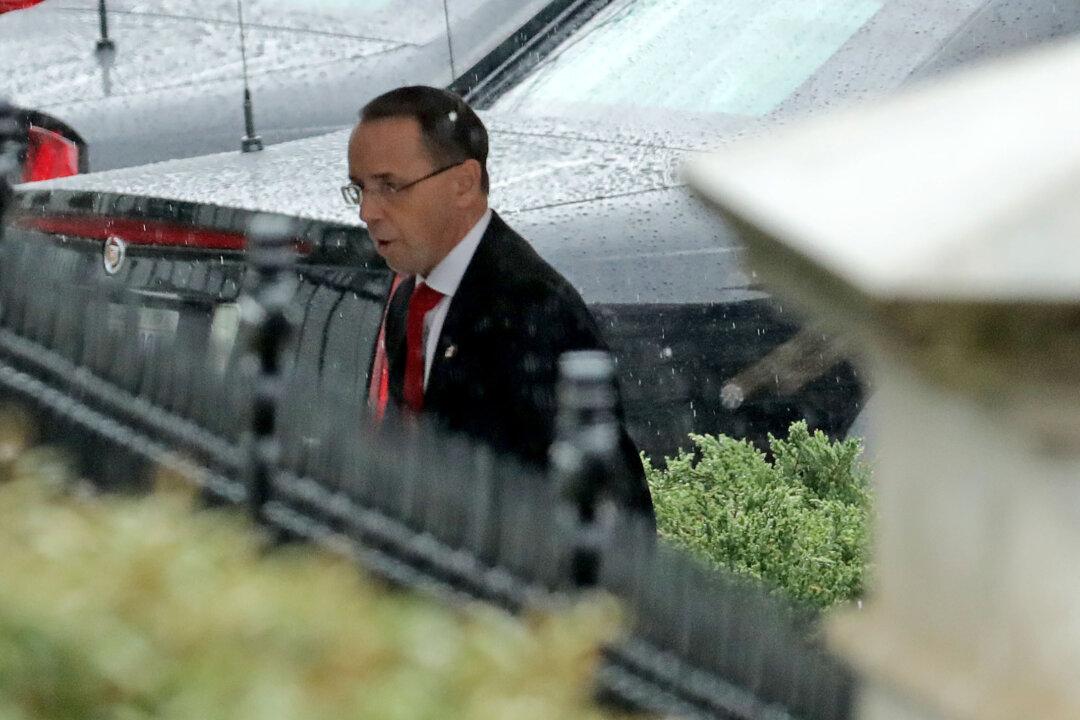Deputy Attorney General Rod Rosenstein in an interview on April 11 defended the Justice Department’s handling of the final report by special counsel Robert Mueller.
“He’s being as forthcoming as he can, and so this notion that he’s trying to mislead people, I think is just completely bizarre,” Rosenstein told The Wall Street Journal.





